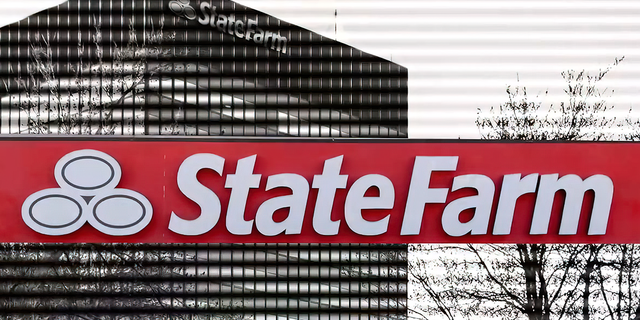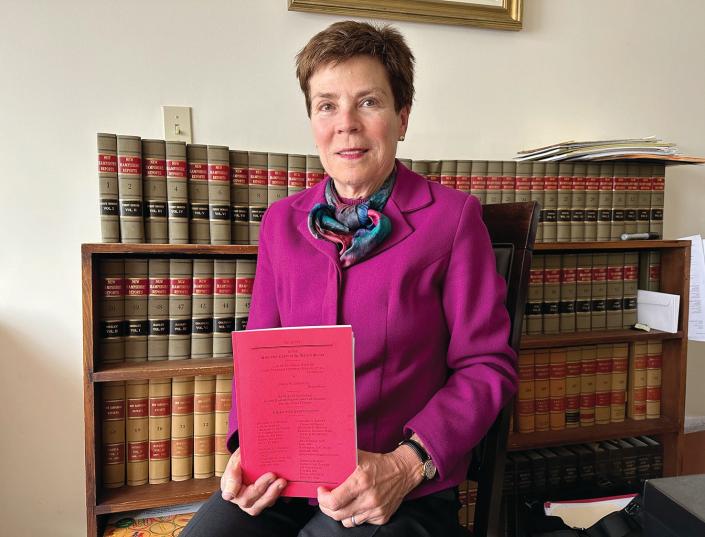Just over a week after President Joe Biden unveiled a plan to cancel $10,000 in federal student loan debt for most borrowers and reform the income-driven repayment program, his administration on Thursday was rebuked once again for its ongoing effort to deny bankruptcy relief to some of the nation’s most hard-pressed student debtors.
“Those who continue to struggle with student debt are in need of updated undue hardship guidance.”
In a letter sent to Attorney General Merrick Garland, Sen. Elizabeth Warren (D-Mass.) asked about the status of the Department of Justice’s “work to update guidance on how it handles undue hardship claims by student borrowers in bankruptcy proceedings.”
“To support the administration’s efforts to overhaul the student loan system and ensure that bankruptcy relief is a viable option for borrowers in severe financial straits,” Warren wrote, “it is critical that you issue and implement this updated guidance without delay.”
Although Biden spent years as a senator siding with lenders and making it more difficult for Americans to reduce educational loan repayment obligations in court, he promised last year to “allow for student debt to be relieved in bankruptcy,” which would help give overwhelmed borrowers a fresh financial start.
Nevertheless, as The Lever first reported in early February, Biden administration officials moved to overturn a federal judge’s ruling eliminating nearly $100,000 in student debt held by 35-year-old Ryan Wolfson, a man with epilepsy who has difficulty securing full-time employment.
In response to public outcry, the Department of Education announced that it would withdraw its notice of appeal in Wolfson’s case. The agency added that “any borrower in an adversary bankruptcy proceeding can request and receive a stay” during the department’s review of current policies, which has been ongoing since July 2021.
Less than a week later, however, the Biden administration filed another notice of appeal in an attempt to block a federal judge’s decision to grant Monique Wheat—a mother of three with an annual income of roughly $21,000—more than $100,000 in student debt relief, as reported by The Lever.
Following another round of backlash, the Department of Education dropped its appeal in Wheat’s case as well, prompting investigative journalist Julia Rock to ask: “Does this signal a policy change at the agency?”
While welcoming the pair of reversals, a coalition of progressive advocacy groups urged Secretary of Education Miguel Cardona to immediately stop fighting countless other individuals seeking to discharge their student loan debt in bankruptcy court, writing that his department is “moving slowly to implement” promised reforms and “does not have a complete grasp on the cases currently pending.”
As Warren’s new letter to Garland explains, she is following up on a March inquiry in which she “joined colleagues in requesting information on how DOJ was handling hardship claims by student borrowers in bankruptcy hearings.”
“Your June 2022 response to that request,” wrote Warren, “indicated that DOJ and the Department of Education (ED) ‘are collaborating to develop guidance for implementing [the undue hardship standard] in a more consistent and streamlined way,’ and provided a copy of a separate DOJ guidance for U.S. Attorneys’ Offices, issued in September 2021 and updated in April 2022, on agreeing to stay of pending student loan discharge proceedings.”
In response to her July request for “a staff-level briefing on the delay in issuing the updated undue hardship guidance,” Warren noted, she received only “a brief email which included no additional details about the guidance’s status.”
“Months have passed since my March 2022 request and borrowers are still waiting for this new undue hardship guidance,” she added. “This is a severe problem for many borrowers who are in or on the brink of bankruptcy.”
The Massachusetts Democrat continued:
As noted in the March 2022 letter, Congress and the courts have nearly eliminated bankruptcy as an option for Americans seeking relief from crushing student debt. The Bankruptcy Code’s undue hardship exception has been narrowly interpreted by courts, with most courts requiring borrowers to prove that their inability to repay the loan would persist into the future, that they could not could not maintain a ‘minimal’ standard of living if forced to repay the loan, and that they have made good faith efforts to repay the loans. In practice, this standard has proven to be so difficult to meet that most borrowers do not even attempt to discharge their student loans through bankruptcy.
Those who do pursue undue hardship claims face aggressive litigation challenges by the federal government that fail to acknowledge borrowers’ challenges in navigating the student loan system. In particular, the current 2015 guidance assumes a borrower can easily access an income-based or income-driven repayment [IDR] plan and that their failure to enroll in IDR may constitute a poor-faith effort to repay their loans. This is despite a well-documented history of servicers’ gross mismanagement of the IDR program, including miscounting payments, failing to update and correct borrowers’ records, misleading borrowers about their payment options, and even steering borrowers eligible for IDR away from these programs. As a result, only 157 people had ever received forgiveness under IDR through January 2021 according to a Government Accountability Office report, even though more than 4.4 million borrowers have been in repayment for at least 20 years and ostensibly should have access to loan forgiveness under IDR.
“Those who continue to struggle with student debt,” wrote Warren, “are in need of updated undue hardship guidance that, among other things, reflects the realities borrowers have faced in accessing and affording payments under IDR.”
“DOJ must prioritize updating the student bankruptcy guidance,” she added, “and provide clear answers about the status of its plans to address bankruptcy discharge claims.”
To that end, the senator asked Garland to provide answers to the following questions by September 15 at the latest:
- Please provide a detailed update on the status of DOJ’s discussions and any updated rulemaking or guidance to address undue hardship bankruptcy discharge claims for student borrowers.
- Since DOJ issued stay guidance on September 7, 2021, how many borrowers have sought a DOJ stay? How many have received such a stay?
- Will the DOJ stay guidance remain in place until DOJ and ED release new policies on discharging student loans through the bankruptcy process?
- Since September 7, 2021, in how many instances have judges granted borrowers discharges of student loans? In how many of these cases has DOJ appealed the discharge? Why did the DOJ appeal these decisions? What steps have DOJ put in place to ensure that they are not causing unnecessary hardships through these appeals?
As The Lever, which first obtained Warren’s letter, noted on Thursday, “bipartisan legislation that would allow student loan debt to be discharged through bankruptcy is languishing in committee.”
Meanwhile, Republican attorneys general, corporate advocacy groups, and GOP lawmakers including Sen. Ted Cruz of Texas are plotting to sue the Biden administration over its newly unveiled student debt cancellation plan.
If one of these lawsuits succeeds—something legal experts say is a real possibility given the right-wing makeup of the federal judiciary up through the U.S. Supreme Court—”bankruptcy reform,” The Lever pointed out, “could become even more crucial for relieving debtors of their burdens.”



